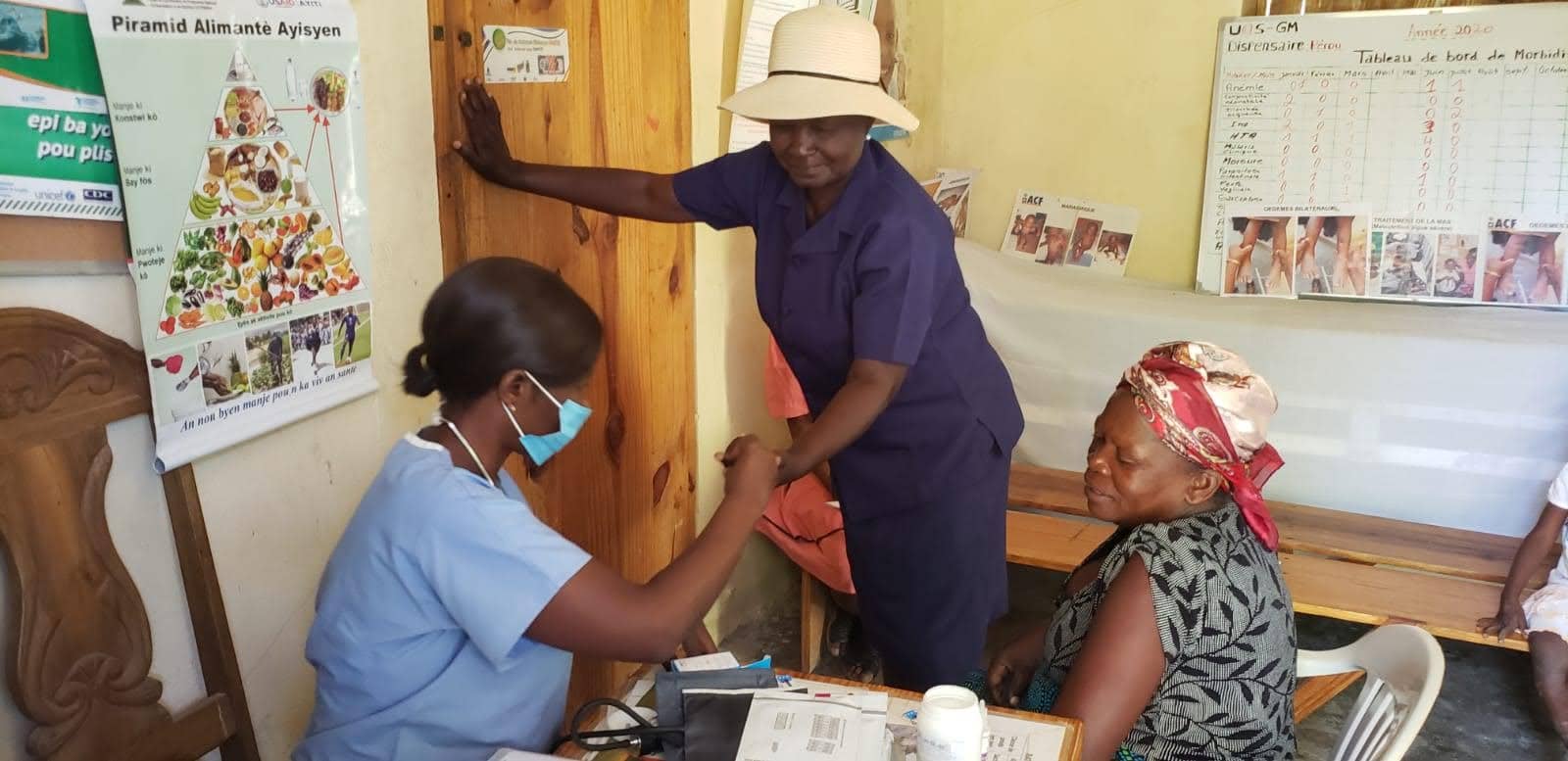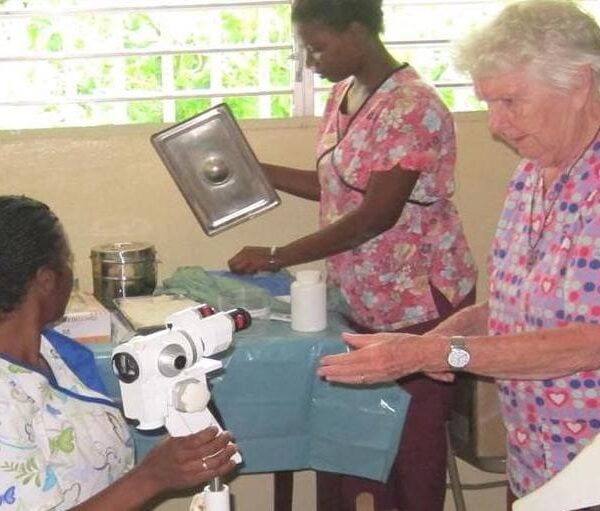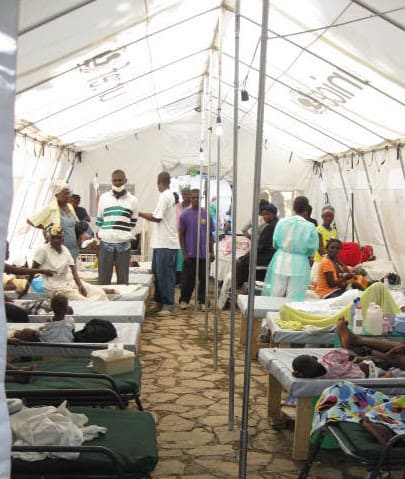
Haiti
Empowering Women Through Health
Haiti – The Country and the Challenges
Haiti is the poorest country in the Western Hemisphere. A history of brutal slavery, a succession of corrupt leaders, and misguided interventions by foreign governments left the country bankrupt and without an infrastructure to support civilian life. To add to Haiti’s difficulties, natural disasters and the recent collapse of the political and justice system has led to widespread civil disruption and a frightening lack of security.
The poverty and civil unrest have resulted in a health crisis for Haiti’s eleven and a half million inhabitants The absence of a public water supply, sewage system, and electricity in most of the country has led to a continual crisis in health care in the country. A child born in Haiti at the present time will have a difficult time surviving childhood and of living a decent life.
Health Care in the Gros-Morne District.
Gros Morne is 175 kilometers north of Port-au-Prince in northern Artibonite province. Twenty-seven thousand people live in the town and an additional 100,000 people live in the surrounding mountainous region. In 2010, Medicine For Peace initiated a comprehensive Women’s Health Program at the Alma Mater Hospital in Gros Morne. Its primary goal was to increase the quality of life for women in rural Haitian through a high level of health care. The program addresses the major challenges that incapacitate Haitian women.
Prevention and treatment of cervical and breast cancer.

MFP team setting up for cervical cancer screening clinic
Haiti has one of the highest cervical cancer rates in the world. The prevention of this disease is of critical importance because there are no treatment facilities for advanced cervical cancer in Haiti.
The MFP program uses highly trained Haitian nurses and North American colleagues to provide cancer prevention and treatment services at Alma Mater Hospital and at more than twenty remote rural sites utilizing mobile clinics. We employ advanced equipment and web-based technologies to improve cancer detection and treatment for cervical pre-cancer and provide timely treatment for patients with invasive cancer. Since we initiated this program, we have screened and treated more than 10,000 women for cervical and breast cancer and brought them into the health care system.
Development of a Women’s Health Maintenance Program.
In addition to screening and treating women’s cancer, we perform minor gynecological procedures, treat sexual transmitted infections (STI’s) including HIV and syphilis, hypertension, and diabetes, and refer patients for appropriate medical and gynecological treatment. As of 2023, we have treated more than 3,000 women for cervico-vaginal infections including 80 patients with AIDS and initiated treatment of 800 patients with stage 2 hypertension.
Most importantly, we educate women on maintaining a healthy lifestyle for them and their families. Our nurse educators can be heard on local radio stations, in churches, in front of women’s group meetings, and in the markets spreading Medicine For Peace’s message of disease prevention.
Capacity building for the Alma Mater Hospital.

Patients being treated in cholera tent at Alma Mater Hospital
Twenty years ago, MFP was drawn to Gros Morne by the pressing health needs of its people and the presence of the Alma Mater Hospital (AMH), a fifty-bed facility that provides medical, surgical, pediatric, obstetric, and emergency care to 140,000 people in the northern Artibonite region.
MFP developed a referral network of competent cyto-pathologists, radiologists, gynecologists, and cancer surgeons extending the capacity of the AMH to provide comprehensive care for patients. We also brought modern computer systems, telemedicine, advanced nursing education, and high standards of quality assurance to AMH.
To decrease the high maternal mortality rate in rural Haiti we support expectant mothers who need emergency care. Most maternal deaths occur at home in Haiti. We have targeted high risk patients and assisted transporting them to hospital to receive emergency obstetrical care.
There are some patients who come to us with advanced, inoperable cancer. In response, we have introduced a palliative care program at AMH in which MFP nurses provide compassionate care to patients and assist their families to care for patients at home.
